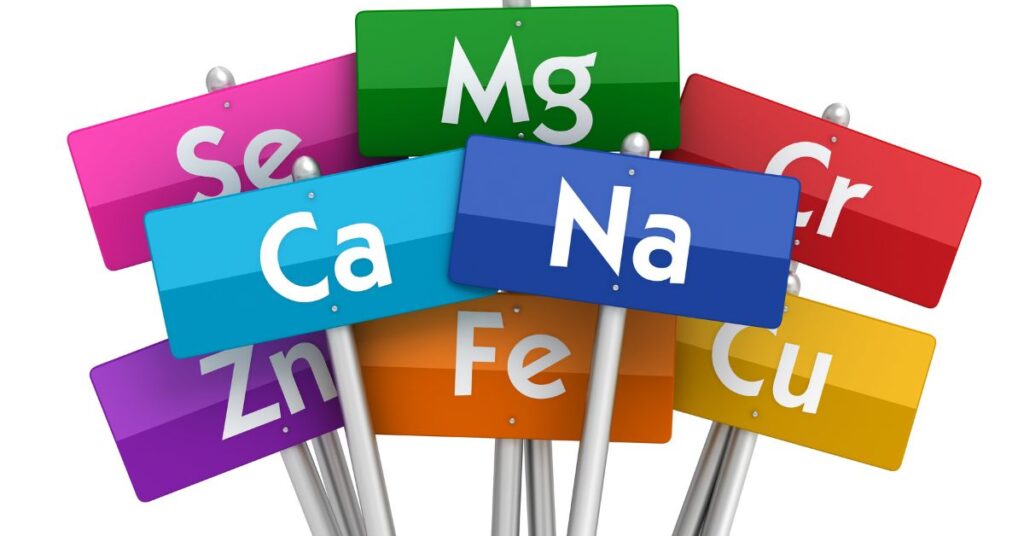
Introduction
A brilliant smile is more than just a display of confidence; it’s a reflection of your overall health. Your teeth are the unsung heroes of your well-being, and their health is closely tied to a seemingly unrelated aspect of your life – your diet.
we embark on a journey into the fascinating world of how Vitamins and Minerals impact Your Teeth. Let’s dive in without the unnecessary jargon, focusing on the essential aspects you need to know.
The Basics of Dental Health

Understanding Tooth Anatomy
To truly appreciate the significance of vitamins and minerals in maintaining oral health, we must start with the basics. Your teeth are not just white pegs in your mouth; they are complex structures designed for specific functions.
Tooth Structure: More Than Meets the Eye
Your teeth have a lot more going on beneath the surface than you might think. Here’s a brief breakdown of the key components:
Enamel
Enamel is the outermost layer, known for its incredible hardness. It’s your tooth’s protective shield against daily wear and tear.
Dentin
Beneath the enamel lies dentin, a hard tissue that forms the bulk of your tooth’s structure. It contains tiny tubes (dental tubules) that connect to the nerve chamber.
Pulp Chamber
At the centre of your tooth is the pulp chamber. This is where the nerve, blood vessels, and connective tissues are located.
Cementum
Cementum covers the tooth’s roots and attaches the tooth to the jawbone.
Periodontal Ligament
This ligament secures your tooth in its socket within the jawbone.
Types of Teeth and Their Functions
Not all teeth are created equal. Each type has a specific role to play in the intricate process of digestion. Here are the primary types of teeth and their functions:
Incisors
Incisors are the front teeth and are designed for cutting and shearing food. They help you take that first bite of your favorite sandwich.
Canines
The canines are the sharp, pointed teeth on the corners of your mouth. They’re ideal for tearing and gripping food.
Premolars
Premolars have a flat surface with cusps, making them perfect for crushing and grinding food.
Molars
Molars are the large, flat teeth at the back of your mouth. They are powerhouse grinders, breaking down your food into digestible pieces.
Now that you have a basic understanding of tooth anatomy, we can move forward to explore how to keep these remarkable structures in top shape. A balanced diet rich in vitamins and minerals is a fundamental component of good dental health.
Vitamins and Minerals Essential for Healthy Teeth

Your journey to understanding the role of vitamins and minerals in maintaining dental health continues with a focus on the essential nutrients that make your teeth shine.
Vitamin D: The Sunshine Vitamin
Vitamin D is often hailed as the “sunshine vitamin” for a good reason. It plays a crucial role in maintaining not only your bone health but also the health of your teeth.
The Significance of Vitamin D
Vitamin D is vital for the absorption of calcium, a mineral essential for strong teeth and bones. Here’s why it matters:
- Calcium Absorption: Without adequate vitamin D, your body struggles to absorb the calcium from your diet, making it harder to maintain tooth strength.
- Immune Function: Vitamin D also supports your immune system, which helps combat oral infections and diseases.
Natural Sources and Sunlight’s Role
Vitamin D can be found in various natural sources, including:
- Fatty Fish: Salmon, mackerel, and trout are rich in vitamin D.
- Egg Yolks: Eggs are a good source, particularly the yolks.
- Mushrooms: Some types of mushrooms can provide vitamin D when exposed to sunlight during growth.
While dietary sources are beneficial, sunlight is also essential for vitamin D production in the body. Your skin synthesizes this vitamin when exposed to UVB sunlight. However, be mindful of sunscreen use, as it can limit vitamin D production.
Vitamin C: Gum Health and Collagen Production
Vitamin C isn’t just known for warding off colds; it’s also crucial for your gum health and collagen production.
The Importance of Vitamin C
Vitamin C offers several oral health benefits:
- Gum Health: It helps maintain the health of your gums, preventing issues like gingivitis.
- Collagen Synthesis: Vitamin C is essential for collagen production, which is vital for the structural integrity of your gums.
Examples of Vitamin C-rich Foods
Incorporating vitamin C-rich foods into your diet can help support your oral health. Some examples include:
- Citrus Fruits: Oranges, lemons, and grapefruits are known for their high vitamin C content.
- Berries: Strawberries, blueberries, and raspberries are packed with this essential nutrient.
- Bell Peppers: Red and green bell peppers are rich sources of vitamin C.
The Impact of Micro-nutrients on Dental Health

Fluoride: The Tooth’s Guardian
Fluoride often works silently but effectively to protect your teeth from the ravages of tooth decay.
The Importance of Fluoride
Fluoride is like a knight in shining armour for your teeth, defending against acid attacks and tooth decay:
- Tooth Enamel: Fluoride strengthens tooth enamel, making it more resistant to acid erosion.
- Remineralization: It can encourage the remineralization of weakened enamel, reversing early signs of decay.
Natural Sources and Fluoridated Water
Fluoride can be found in several sources, including:
- Water: Many municipal water supplies are fluoridated to ensure everyone has access to this essential mineral.
- Toothpaste: Fluoride toothpaste is a common way to provide direct protection to your teeth.
- Dental Treatments: Dentists often offer fluoride treatments during regular check-ups.
Magnesium: Enamel Strength and Immune Support
Magnesium might not be the first mineral that comes to mind for dental health, but it has unique contributions to offer.
The Role of Magnesium
Magnesium plays a dual role in supporting your oral well-being:
- Enamel Strength: Magnesium aids in enamel formation and mineralization, enhancing its strength.
- Immune Support: It contributes to a healthy immune system, helping your body combat oral infections.
Vitamin K: Regulating Calcium in Teeth
Vitamin K may not be in the spotlight often, but its role in dental health is worth recognizing.
How Vitamin K Helps
Vitamin K supports your teeth by regulating calcium within them:
- Calcium Balance: It ensures that calcium is distributed and used appropriately in your teeth, preventing calcification.
- Strong Teeth: Proper calcium regulation maintains the strength and integrity of your teeth.
Foods Rich in Vitamin K
To increase your vitamin K intake, consider these dietary choices:
- Leafy Greens: Spinach, kale, and broccoli are excellent sources of vitamin K.
- Animal Products: Meat, liver, and eggs also provide this essential vitamin.
- Fermented Foods: Certain fermented foods like sauerkraut can contain vitamin K.
The Consequences of Deficiency

Tooth Decay and Weakness
The Role of Nutrients
Proper nutrition is the cornerstone of strong teeth. When your body lacks vital vitamins and minerals, it can lead to:
- Tooth Decay: A deficiency in key nutrients like calcium and phosphate can weaken tooth enamel, making your teeth more susceptible to decay.
- Cavities: Without adequate nutrition, your teeth may not be able to repair themselves effectively, increasing the risk of cavities.
- Tooth Sensitivity: Poor nutrition can result in thinning enamel, causing increased tooth sensitivity.
The Importance of a Balanced Diet
To prevent tooth decay and maintain healthy teeth, focus on a balanced diet rich in essential nutrients. This includes consuming foods like dairy products, leafy greens, and lean proteins to ensure your teeth receive the necessary nourishment.
Gum Diseases and Oral Infections
Gums play a crucial role in your oral health, and nutrient deficiencies can wreak havoc on them.
Gum Health
A lack of vital nutrients like vitamin C can lead to:
- Bleeding Gums: Insufficient vitamin C can cause bleeding gums, a common sign of gum disease.
- Gingivitis: Deficiencies may increase the risk of gingivitis, an early stage of gum disease.
- Tooth Mobility: In severe cases, gum diseases can lead to tooth mobility or tooth loss.
Maintaining Gum Health
Incorporate vitamin C-rich foods like citrus fruits, strawberries, and bell peppers into your diet to support gum health. Additionally, maintaining proper oral hygiene practices, such as regular brushing and flossing, is essential for preventing gum diseases.
Delayed Tooth Development
For children, proper nutrition is paramount as it directly influences the development of strong and healthy teeth.
Growth Phases
Inadequate nutrition during childhood can result in:
- Delayed Tooth Eruption: Children may experience delayed tooth eruption, which can impact their ability to eat and speak properly.
- Malformed Teeth: Nutrient deficiencies can lead to malformed teeth, affecting their alignment and structure.
- Cavities and Decay: Weakened teeth due to poor nutrition are more susceptible to cavities and decay.
Nutrient-Rich Diets for Children
Ensure that children receive a balanced diet with ample vitamins and minerals. Incorporate dairy products, leafy greens, lean proteins, and fruits into their meals. Regular dental check-ups and guidance from a pediatric dentist can also help ensure proper tooth development.
By understanding the consequences of nutrient deficiencies, you can take proactive steps to maintain excellent dental health for yourself and your children.
Tips for Maintaining Healthy Teeth Through Nutrition

Crafting a Tooth-Friendly Diet
Essential Food Groups
A balanced diet is essential for strong teeth. Here’s how you can create a tooth-friendly diet:
- Dairy Products: Dairy products like milk, cheese, and yogurt are rich in calcium, which strengthens enamel.
- Lean Proteins: Incorporate lean proteins such as poultry, fish, and eggs into your diet. They provide phosphorus, which supports tooth mineralization.
- Leafy Greens: Vegetables like spinach and kale contain essential vitamins and minerals like vitamin A, vitamin C, and calcium, benefiting both your teeth and gums.
- Fruits: Opt for vitamin C-rich fruits like oranges, strawberries, and kiwi. They contribute to gum health and collagen production.
- Nuts and Seeds: Almonds, cashews, and chia seeds are great sources of magnesium, which helps maintain enamel strength and supports the immune system.
- Fiber-Rich Foods: Foods high in fibre, such as apples and carrots, can help clean your teeth naturally and stimulate saliva production.
Meal Plans
Consider these meal plans for optimal dental health:
- Breakfast: Start your day with a bowl of yoghurt topped with berries and a sprinkle of almonds. This combines calcium, vitamin C, and magnesium.
- Lunch: Enjoy a grilled chicken salad with plenty of leafy greens and a side of carrot sticks for a balanced meal.
- Dinner: Opt for a baked salmon fillet with steamed broccoli, providing both lean protein and calcium.
- Snacks: Almonds or a piece of cheese can make for a nutritious snack between meals.
Oral Care Habits for Optimal Results
While diet plays a pivotal role in maintaining healthy teeth, combining it with proper oral care practices is crucial for optimal results. Here are some key recommendations:
- Regular Brushing: Brush your teeth at least twice a day using fluoride toothpaste to strengthen enamel and prevent tooth decay.
- Flossing: Don’t forget to floss daily to remove food particles and plaque from between your teeth.
- Timing Matters: After consuming acidic or sugary foods, wait for at least 30 minutes before brushing to protect your enamel.
- Hydration: Stay well-hydrated with water to maintain saliva production, which helps wash away harmful bacteria.
- Regular Dental Check-ups: Visit your dentist for routine check-ups and professional cleanings to catch issues early and maintain your oral health.
By following these dietary recommendations and practising good oral care, you’ll be on your way to maintaining strong, beautiful teeth.
Conclusion
As we come to the end of our journey through the world of healthy teeth and the role of Vitamins and Minerals impact Your Teeth, it’s time to summarize our key takeaways and motivate you to take action.
With this newfound knowledge, it’s time to take action and prioritize your oral health. Here’s how to start your journey to strong, beautiful teeth:
By embracing these practices, you’re not only ensuring a radiant smile but also contributing to your overall health and well-being. Remember, your journey to strong, beautiful teeth begins now, and it’s a journey well worth taking.
Thank you for joining us on this exploration of how Vitamins and Minerals impact Your Teeth. For personalized care and expert advice, visit Sri Sanjeevini Dental and take the next step towards optimal oral health. May your smile shine bright, and your teeth stay healthy for years to come.


